By Maira Sheikh Student of New York University
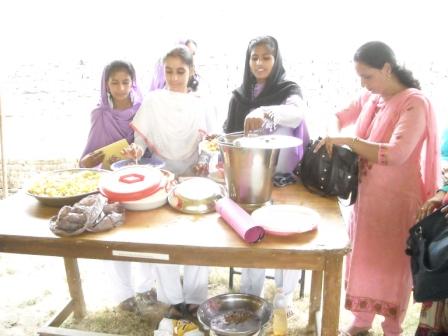
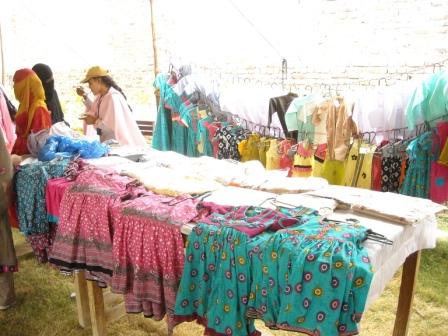
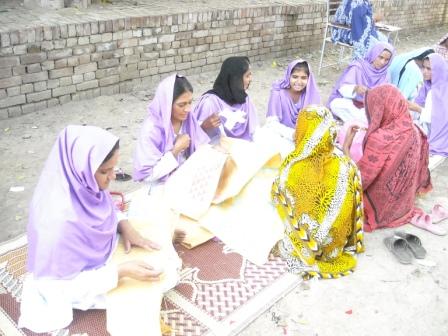
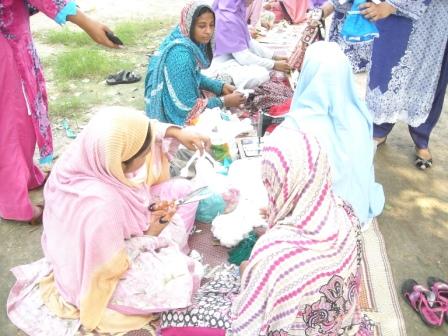

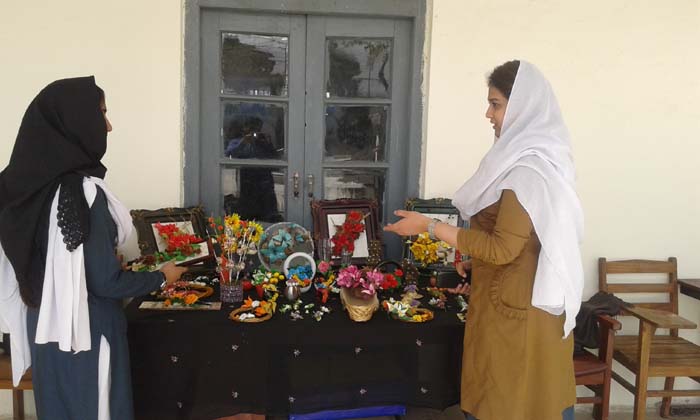
Introduction
The purpose of this qualitative report is to assess the impact of the Changemaking intelligence test in inspiring and equipping students in higher education institutions across Pakistan, with a supportive environment for creating social change. It uses personal testimonials of the participants as a basis of analysis to inquire the impact on their motivation, their future plans and the community at large.
Background
The Changemaker Project kicked off by seeking expressions of interest from the public and private universities of Pakistan for participating in the ‘Changemaker Project.’ The YES Network introduced the “Changemaker Project” to 80 leading universities of Pakistan. The project goals and objectives inspired many universities to join the project. The YES Network received expressions of interest from 70 universities from across Pakistan. These universities represent a good mix of both public and private universities.
A series of seminars on the concept of youth-led changemaking were organized in several universities with the aim to inspire young people to become changemakers and to participate in the Changemaking Intelligence Test/Competition. These seminars were attended by over 5543 students. These seminars were carried out by YES directly and indirectly (through trained staff and students). The YES Network conducted 82 direct seminars.
The YES Network carried out Changemaking Intelligence Test/Competition in universities to provide young people with opportunities and support (financial and technical) to drive change in their communities. The Changemaking Intelligence Test/Competition also encouraged students to think creatively and innovatively in designing a solution for addressing a problem, and to motivate them to make money while also making a difference. The YES Network engaged 2,606 students directly (996 male and 1610 female students) in Changemaking Intelligence Test/Competition to help young people discover their inherent changemaking intelligence.
Chapter I: MOTIVATION
Motivation through YES Network Seminars
Prior to the test, the YES network team including the founder Mr. Ali Raza himself visited multiple schools and colleges to introduce students to the concept of changemaking and create awareness regarding the Change Making Intelligence test. Most of the students who participated claim to have joined the test because of the inspiration they got from Mr. Ali himself. They placed emphasis on how they were moved by the facts and figures shared by him and were deeply inspired by the fairly new concept of Social Entrepreneurship, of which they had never heard before. Students felt enlightened by the entrepreneurial spirit instilled in them by the YES network and they were convinced that if they take responsible initiative, they will be supported and encouraged to grow. One student stated:
“Listening to sir Ali Raza Khan led to a 180 degree shift in my approach and that’s how much journey with YES network started”
Some students mentioned how being part of the sessions conducted by the YES Network were a turning point in their life. Not only did they find the idea of social entrepreneurship unique and promising but also were able to discover the abilities they had but were never aware of. In addition to the information sessions, participants gave huge credit to the two-day training session hosted by the YES network in giving them a deeper understanding of the impact of Changemaking intelligence:
“The two-day training session provided me a great insight into the topic and really encouraged me to participate (in the test)”
In addition to the uniqueness of the project, participants also highlighted how the competitive nature of the test encouraged many to take part. They argued that when something is presented as a competition and includes awards and prizes, students are more likely to participate. Winning is always an attraction for students and winning a competition that led to social change was an even bigger deal.
Personal Motivation
Students also mentioned that certain personal events occurred in their lives that pushed them towards thinking about larger social issues such as education or health. One of the participants narrated a story of his sister passing away due to Hepatitis and how her death encouraged him to create a platform that generates health awareness about this particular disease. He stated:
“The death of my sister at the age of 32, who I was very close to, moved me tremendously and made me realise the importance of spreading more information about this disease.. I therefore, participated in the test with full passion and compassion”
Similarly, another participant mentioned how the worsening of the political and economic situation in his region led him to take action and participate in the test so he could develop his career and support his family in the difficult time they were facing.
Chapter II: SUPPORT
Support by YES Network Pakistan
In 2015, The YES Network joined hands with the British Council and developed a comprehensive methodology to provide structured support to interested institutions and help them navigate the process of becoming a changemaker campus. YES network received an overwhelming response from the universities who were willing to partner with them, and more importantly willing to support their students in their journey to become youth changemakers. This partnership with the higher management of educational institutions was itself a big support for the students.
Participants raised the point of lack of accessibility to the higher administration in universities and the difficulty of introducing something new on a student level.
Therefore, YES network served as a bridge between students and university administration.
Participants of the competition also spoke highly of the supportive nature of the organization. They applauded the sense of encouragement and support, both monetary and emotional they received from the team during the competition.
Some participants also highlighted the support they received from YES network in gaining further opportunities and resources even after the competition in the form of conferences in bigger cities and other seminars.
Above all, the initial financial incentive provided by the YES Network was a great source of encouragement for many and led them to take initiative. Participants expressed their admiration for the level of trust and confidence the YES network put in young people
Support by the Institutions
Participants claim that by giving them an opportunity to participate in the test, the institution, in fact, gave them a chance to reveal their hidden talents not just to themselves but also the university staff. They mentioned that such entrepreneurial and creative skills were unknown to their teachers and professor, but the test helped them form new connections with them. Participants were allowed to discuss plans with their teachers, take their guidance and mentorship and work on their feedback.
The institution also offered some entrepreneurship courses that assisted students in developing their entrepreneurial knowledge. Students were encouraged to be given spaces to brainstorm and plan their ideas. The principals also encouraged staff and teachers to support students during the process by becoming their
mentors. As students were struggling to maintain a balance between their academics and their participation in this competition, teachers are reported to have shown great cooperation and support to the students.
However, there were also some instances where students felt lack of support and concern by the administration. They expressed how they wish they got more attention from the admin and were celebrated by their staff for their achievements.
Support by the Parents
Studies have shown that parental support is a huge factor influencing student motivation to participate in academic as well as non-academic activities. With social entrepreneurship being a fairly new concept among the community, parents showed exceptional support to their children throughout the process. Some participants mentioned how their parents were hesitant in the beginning, but the results of the test made them believe in the power of learning and trying new things. A participant said:
“When I participated in this test, my parents understood the true value of education. They realized how important it is to learn and educate yourself in order to grow and succeed. So, for them, I was the star of my own home”
According to the participants, all parents want their children to be directed to practical life and this changemaking test was a great example of how that can be done effectively. Parents were not only impressed by the new skills their children had developed but also amazed by how those skills were being used to generate income. Parents showed immense support and confidence in their children to do better in the test.
Participants also shared multiple examples of how their parents even helped them in the projects they initiated. Some examples include:
“My mother helped me in cooking and baking for the stalls I arranged. She is
a great cook, and everyone loved her cookies and brownies”
Overall, parental support played a great role in the success of many students and their achievements were very well celebrated.
Chapter III: The Impact
Impact on Confidence Level
When inquired about the benefits students achieved from participating in the competition, one of the most repeated ones was ‘gain in confidence’. Students claimed to have received a tremendous amount of confidence and belief in their capabilities of becoming youth changemakers. They were reminded that they own certain qualities and characteristics that set them apart from others.
“There was a time when I was very scared that I couldn’t do one thing or the other, but participating in this test made me realize that anything is possible if I have the intention to do it”
One way in which the YES network achieved this goal is by providing young people a platform to recognize their skills, polish them and use them to create change both in the form of social good and financial returns. This process inspired many students on the way and served as a great realization for them of their own talents and skills.
One student mentioned how by managing all studies, home, relationships along with this project made them realize how capable they are of doing multiple things together. This journey sparked in her the confidence of juggling different acts and making a difference in her life as well as the lives of those around her.
Impact on Personal Grooming
The Change Making Intelligence test required participants to not only generate ideas but also execute them. The execution of these ideas forced them to step out of their comfort level and take a leap forward into the way of changemaking. This included forming connections, building relationships with various stakeholders, social media outreach etc. all of which led to their personal grooming and development. Participants shared how they had participated in workshops and competitions earlier but none of them had an impact on their communication, speaking and analytical skills as much as the Changemaking Intelligence Test did.
“ I did a lot of work earlier too but I was not professional (in the way I did it). I became more professional, more patient during this challenge. This is a skill that needs to be learned and I learned it by participating in the test”
Other skills they reported to have gained include market research, sales, human resource management, loss-profit analysis, accounts and finance etc. Working in teams also equipped them with team building and leadership skills. Participants expressed their excitement in accumulating these multitude of skills and knowledge and are hopeful that it will assist them in their future academic or career path.
Impact on Future Plans
One of the main goals of the Changemaking Intelligence Test was to show students a new direction; one that leads them to creating measurable change in their own lives as well as change in the society at large. To say that they were successful in achieving that might be an understatement.
Almost all the participants interviewed claimed to have shifted their life goals after their participation in the competition. While they were focused on only getting a degree and finding a job, this entrepreneurial experience broadened their horizons and gave them many more areas to explore. Their confidence in trying new things in the future emerges from their practical experience as part of the test itself. As one student stated:
“Starting from Rs. 100 and getting a profit of Rs 6000 on it really changed my thinking about the potential of starting meaningful business”
The test developed not only their interest in initiating business but also their trust in its growth and potential. Participants mentioned how they began to dream big after the test which brought a huge shift in their goals for the future:
“Before this test, I wanted to be just another employee but after this test, I wanted to become a CEO”
There have emerged several success stories from the test that are living examples of how this dream can be achieved. One of the participants, running a digital company of his own, confidently said:
“Where years ago, I wanted to do a job myself, I have now given jobs to 4-5 people myself”
Examples like these serve as a source of inspiration for many and do a successful job at keeping the entrepreneurial spirit alive. It also serves as a proof of how the test opened up greater avenues of growth and opportunity for its participants.
Impact on Community
The Changemaking Intelligence Test not only provided a unique opportunity to the students in terms of awakening the changemaker within them but also provided the community with a valuable chance to benefit from the ideas and skills owned by the youth. All the projects executed by the student had a social aspect attached to it, with the aim of making the lives of those around them better. From food, to health, to education, to technological support, students set remarkable examples of how social enterprises can prove beneficial for them and for the community at large.
